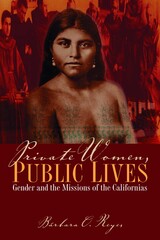
Through the lives and works of three women in colonial California, Bárbara O. Reyes examines frontier mission social spaces and their relationship to the creation of gendered colonial relations in the Californias. She explores the function of missions and missionaries in establishing hierarchies of power and in defining gendered spaces and roles, and looks at the ways that women challenged, and attempted to modify, the construction of those hierarchies, roles, and spaces.
Reyes studies the criminal inquiry and depositions of Barbara Gandiaga, an Indian woman charged with conspiracy to murder two priests at her mission; the divorce petition of Eulalia Callis, the first lady of colonial California who petitioned for divorce from her adulterous governor-husband; and the testimonio of Eulalia Pérez, the head housekeeper at Mission San Gabriel who acquired a position of significant authority and responsibility but whose work has not been properly recognized. These three women's voices seem to reach across time and place, calling for additional, more complex analysis and questions: Could women have agency in the colonial Californias? Did the social structures or colonial processes in place in the frontier setting of New Spain confine or limit them in particular gendered ways? And, were gender dynamics in colonial California explicitly rigid as a result of the imperatives of the goals of colonization?
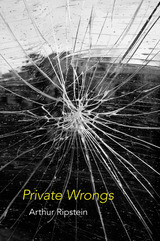
A waiter spills hot coffee on a customer. A person walks on another person’s land. A moored boat damages a dock during a storm. A frustrated neighbor bangs on the wall. A reputation is ruined by a mistaken news report. Although the details vary, the law recognizes all of these as torts, different ways in which one person wrongs another. Tort law can seem puzzling: sometimes people are made to pay damages when they are barely or not at fault, while at other times serious losses go uncompensated. In this pioneering book, Arthur Ripstein brings coherence and unity to the baffling diversity of tort law in an original theory that is philosophically grounded and analytically powerful.
Ripstein shows that all torts violate the basic moral idea that each individual is in charge of his or her own person and property, and never in charge of another individual’s person or property. Battery and trespass involve one person wrongly using another’s body or things, while negligence injures others by imposing risks to them in ways that are inconsistent with their independence. Tort remedies aim to provide a substitute for the right that was violated.
As Private Wrongs makes clear, tort law not only protects our bodies and property but constitutes our entitlement to use them as we see fit, consistent with the entitlement of others to do the same.
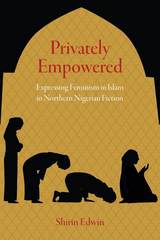

The development of the welfare state is seen as central to the decline of what the authors call 'old privatisation'. Its succession by neoliberalism has created the ground for the resurgence of the private sector. The growth of private military, policing and penal systems is located within the broader global changes brought about by neoliberalism and the dystopian future that it portends.
The book is a powerful petition for the reversal of the increasing privatization of the state and the neoliberalism that underlies it.
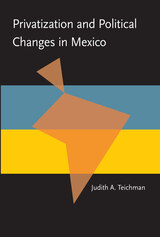
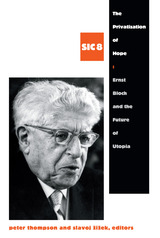
Contributors. Roland Boer, Frances Daly, Henk de Berg, Vincent Geoghegan, Wayne Hudson, Ruth Levitas, David Miller, Catherine Moir, Caitríona Ní Dhúill, Welf Schröter, Johan Siebers, Peter Thompson, Francesca Vidal, Rainer Ernst Zimmermann, Slavoj Žižek

The increasing reliance on private security services raises questions about the effects of privatization on the quality of public police forces, particularly in high-crime, low-income areas. In an effective pro-and-con format, two experts on policing offer two strikingly different perspectives on this trend towards privatization. In the process, they provide an unusually thoughtful discussion of the origins of both the public police and the private security sectors, the forces behind the recent growth of private security operations, and the risks to public safety posed by privatization.
In his critique of privatization, Peter K. Manning focuses on issues of free market theory and management practices such as Total Quality Management that he believes are harmful to the traditional police mandate to control crime. He questions the appropriateness of strategies that emphasize service to consumers. For Brian Forst, the free market paradigm and economic incentives do not carry the same stigma. He argues that neither public nor private policing should have a monopoly on law enforcement activities, and he predicts an even more varied mix of public and private police activities than are currently available.
Following the two main sections of the book, each author assesses the other's contribution, reflecting on not just their points of departure but also on the areas in which they agree. The breadth and depth of the discussion makes this book essential for both scholars and practitioners interested in policing generally and privatization in particular.

Privatizing Health Services in Africa analyzes the disappearance of public health in the form of state services in Africa, and the growth of a private market in health care that will serve primarily an urban elite. Meredeth Turshen considers the implications of introducing private insurance in countries with growing unemployment, a shrinking formal job sector, and a lack of social security programs or other safety nets. She debates the pros and cons of shifting the delivery of health services to the nongovernmental sector in the context of new concepts of the role of the state. Many of the schemes to privatize the purchase and sale of pharmaceuticals reverse decades of United Nations work challenging the power of the multinational drug industry. Turshen weighs these policy changes in light of the World Bank’s eclipse of the World Health Organization as the premier UN health policy agency. Until now, no book has disputed the World Bank’s plans to privatize health care in Africa. This is the first book-length analysis of policy changes in light of monetarism and globalization.
Throughout the book, Turshen examines the implications of privatization for gender equity. She also provides a case study of Zimbabwe and comparative material from Malawi, Mozambique, and Zambia. Her study makes a contribution to current debates on the impact of structural adjustment policies on health and the design of health services in the Third World.


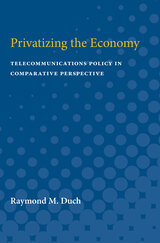
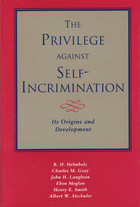
Each chapter of this definitive study uncovers what the privilege meant in practice. The authors trace the privilege from its origins in the medieval period to its first appearance in English common law, and from its translation to the American colonies to its development into an effective protection for criminal defendants in the nineteenth century. The authors show that the modern privilege—the right to remain silent—is far from being a basic civil liberty. Rather, it has evolved through halting and controversial steps. The book also questions how well an expansive notion of the privilege accords with commonly accepted principles of morality.
This book constitutes a major revision of our understanding of an important aspect of both criminal and constitutional law.


Exploring the violent histories and alternate trajectories effaced through this banal backgrounding of a crucial aspect of French history and culture, this richly textured ethnography lays bare the profound nostalgia that undergirds Catholicism’s circulation in nonreligious sites such as museums, corporate spaces, and political debates. Oliphant’s aim is to unravel the contradictions of religion and secularism and, in the process, show how aesthetics and politics come together in contemporary France to foster the kind of banality that Hannah Arendt warned against: the incapacity to take on another person’s experience of the world. A creative meditation on the power of the taken-for-granted, The Privilege of Being Banal is a landmark study of religion, aesthetics, and public space.
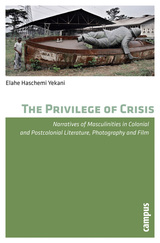
Despite the understanding of scholars that masculinity, far from being a natural or stable concept, is in reality a social construction, the culture at large continues to privilege an idealized, coherent male point of view. The Privilege of Crisis draws on the work of authors such as H. Rider Haggard, Rudyard Kipling, and Joseph Conrad—as well as contemporary postcolonial writers such as J. M. Coetzee, Hanif Kureishi and Zadie Smith—to show how recurrent references to a "crisis" of masculinity or the decline of masculinity serve largely to demonstrate and support positions of male privilege.
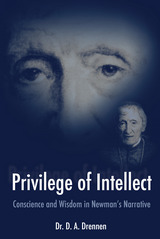
Based on decades of research, A Privilege of Intellect is D. A. Drennen’s portrait of the English cardinal John Henry Newman (1801–90), whose conversion to the Roman Catholic Church in 1845 significantly boosted the presence of the Catholic Church in England and caused many Anglicans to follow his example. Newman—who will be beatified this fall—devoted his life both to the Church and to the university, demonstrating that religious faith and intellectual pursuits could exist in harmony. Drennen’s biography combines theology with psychology and philosophy and will appeal to anyone interested in the history of the Church of England and the Roman Catholic Church.
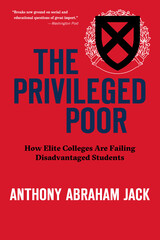
An NPR Favorite Book of the Year
“Breaks new ground on social and educational questions of great import.”
—Washington Post
“An essential work, humane and candid, that challenges and expands our understanding of the lives of contemporary college students.”
—Paul Tough, author of Helping Children Succeed
“Eye-opening…Brings home the pain and reality of on-campus poverty and puts the blame squarely on elite institutions.”
—Washington Post
“Jack’s investigation redirects attention from the matter of access to the matter of inclusion…His book challenges universities to support the diversity they indulge in advertising.”
—New Yorker
The Ivy League looks different than it used to. College presidents and deans of admission have opened their doors—and their coffers—to support a more diverse student body. But is it enough just to admit these students? In this bracing exposé, Anthony Jack shows that many students’ struggles continue long after they’ve settled in their dorms. Admission, they quickly learn, is not the same as acceptance. This powerfully argued book documents how university policies and campus culture can exacerbate preexisting inequalities and reveals why some students are harder hit than others.
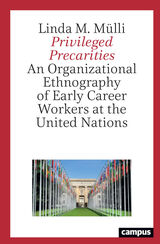
This ethnography focuses on the work and lifeworld at the United Nations in Geneva and Vienna. By emphasizing the perspectives of entry-level workers, this book addresses the increasing flexibility and job insecurity for those at the beginning of their potential UN careers. It explores questions such as: How do career aspirants reconcile their narratives with the organization’s image built over the past decades? How can we understand institutional power and individual agency through the lens of ritual theory and the theory of social orders? This study finally examines the entangled discourses around privilege and prestige on the one hand and the precarity and vulnerability of a growing number of UN workers on the other hand. It shows that these phenomena are not contractionary but two sides of the coin. Using the UN as an example, the study considers mechanisms of flexible and unstable work environments in times of cognitive and affective capitalism.
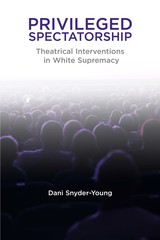
Many professional theater artists attempt to use live performances in formal theater spaces to disrupt racism and create a more equitable society. Privileged Spectatorship: Theatrical Interventions in White Supremacy examines the impact of such projects, looking at how and why they do and do not intervene in white supremacy. In this incisive study, Dani Snyder-Young examines audience responses to a range of theatrical events that focus on race‑related conflict or racial identity in the contemporary United States. The audiences for these performances, produced at mainstream not‑for‑profit professional theaters in major American cities in 2013–18, reflect dominant patterns of theater attendance: the majority of spectators are older, affluent, white, and describe themselves as politically progressive. Snyder-Young studies the ways these audience members consume the stories of racialized others and analyzes how different artistic, organizational, and programmatic strategies can (or cannot) mitigate white privilege.
This book is essential reading for scholars and students of theater, performance studies, and critical ethnic studies and for theater practitioners interested in equity and inclusion.
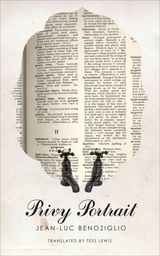
Darkly amusing, Privy Portrait is the monologue of a man, disoriented by the gaping void of not knowing his own nationality, recounting the final remnants of his own sanity and his life. In this buffoonish, even grotesque, yet deeply pitiful man, Benoziglio explores, with a light yet profound touch, weighty themes such as the roles of family, history, one’s moral responsibility towards others, and the fragility of personal identity.
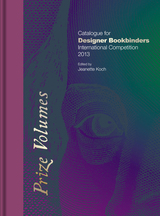
Prize Volumes collects the full 250 entries from the 2013 competition, highlighting the twenty-eight winning bindings and offering a veritable showcase for the creativity and craftsmanship of the international bookbinding community. As beautifully designed as many of the bindings it displays, this showcase of the best in modern bookbinding will become a collector’s item among aficionados of bookbinding—as well as a handsome addition to any personal library.

Defense of a poet, and five speeches from after exile.
Cicero (Marcus Tullius, 106–43 BC), Roman lawyer, orator, politician and philosopher, of whom we know more than of any other Roman, lived through the stirring era that saw the rise, dictatorship, and death of Julius Caesar in a tottering republic. In his political speeches especially and in his correspondence we see the excitement, tension and intrigue of politics and the part he played in the turmoil of the time. Of about 106 speeches, delivered before the Roman people or the Senate if they were political, before jurors if judicial, fifty-eight survive (a few of them incompletely). In the fourteenth century Petrarch and other Italian humanists discovered manuscripts containing more than 900 letters of which more than 800 were written by Cicero and nearly 100 by others to him. These afford a revelation of the man all the more striking because most were not written for publication. Six rhetorical works survive and another in fragments. Philosophical works include seven extant major compositions and a number of others; and some lost. There is also poetry, some original, some as translations from the Greek.
The Loeb Classical Library edition of Cicero is in twenty-nine volumes.

Three postconsular speeches.
Cicero (Marcus Tullius, 106–43 BC), Roman lawyer, orator, politician and philosopher, of whom we know more than of any other Roman, lived through the stirring era that saw the rise, dictatorship, and death of Julius Caesar in a tottering republic. In his political speeches especially and in his correspondence we see the excitement, tension and intrigue of politics and the part he played in the turmoil of the time. Of about 106 speeches, delivered before the Roman people or the Senate if they were political, before jurors if judicial, fifty-eight survive (a few of them incompletely). In the fourteenth century Petrarch and other Italian humanists discovered manuscripts containing more than 900 letters of which more than 800 were written by Cicero and nearly 100 by others to him. These afford a revelation of the man all the more striking because most were not written for publication. Six rhetorical works survive and another in fragments. Philosophical works include seven extant major compositions and a number of others; and some lost. There is also poetry, some original, some as translations from the Greek.
The Loeb Classical Library edition of Cicero is in twenty-nine volumes.

The ascending statesman.
Cicero (Marcus Tullius, 106–43 BC), Roman lawyer, orator, politician and philosopher, of whom we know more than of any other Roman, lived through the stirring era that saw the rise, dictatorship, and death of Julius Caesar in a tottering republic. In his political speeches especially and in his correspondence we see the excitement, tension and intrigue of politics and the part he played in the turmoil of the time. Of about 106 speeches, delivered before the Roman people or the Senate if they were political, before jurors if judicial, fifty-eight survive (a few of them incompletely). In the fourteenth century Petrarch and other Italian humanists discovered manuscripts containing more than 900 letters of which more than 800 were written by Cicero and nearly 100 by others to him. These afford a revelation of the man all the more striking because most were not written for publication. Six rhetorical works survive and another in fragments. Philosophical works include seven extant major compositions and a number of others; and some lost. There is also poetry, some original, some as translations from the Greek.
The Loeb Classical Library edition of Cicero is in twenty-nine volumes.

Speeches from turbulent times.
Cicero (Marcus Tullius, 106–43 BC), Roman lawyer, orator, politician and philosopher, of whom we know more than of any other Roman, lived through the stirring era that saw the rise, dictatorship, and death of Julius Caesar in a tottering republic. In his political speeches especially and in his correspondence we see the excitement, tension and intrigue of politics and the part he played in the turmoil of the time. Of about 106 speeches, delivered before the Roman people or the Senate if they were political, before jurors if judicial, fifty-eight survive (a few of them incompletely). In the fourteenth century Petrarch and other Italian humanists discovered manuscripts containing more than 900 letters of which more than 800 were written by Cicero and nearly 100 by others to him. These afford a revelation of the man all the more striking because most were not written for publication. Six rhetorical works survive and another in fragments. Philosophical works include seven extant major compositions and a number of others; and some lost. There is also poetry, some original, some as translations from the Greek.
The Loeb Classical Library edition of Cicero is in twenty-nine volumes.

The early speeches.
Cicero (Marcus Tullius, 106–43 BC), Roman lawyer, orator, politician and philosopher, of whom we know more than of any other Roman, lived through the stirring era that saw the rise, dictatorship, and death of Julius Caesar in a tottering republic. In his political speeches especially and in his correspondence we see the excitement, tension and intrigue of politics and the part he played in the turmoil of the time. Of about 106 speeches, delivered before the Roman people or the Senate if they were political, before jurors if judicial, fifty-eight survive (a few of them incompletely). In the fourteenth century Petrarch and other Italian humanists discovered manuscripts containing more than 900 letters of which more than 800 were written by Cicero and nearly 100 by others to him. These afford a revelation of the man all the more striking because most were not written for publication. Six rhetorical works survive and another in fragments. Philosophical works include seven extant major compositions and a number of others; and some lost. There is also poetry, some original, some as translations from the Greek.
The Loeb Classical Library edition of Cicero is in twenty-nine volumes.

The statesman defends a friend and assails an enemy.
Cicero (Marcus Tullius, 106–43 BC), Roman lawyer, orator, politician and philosopher, of whom we know more than of any other Roman, lived through the stirring era that saw the rise, dictatorship, and death of Julius Caesar in a tottering republic. In his political speeches especially and in his correspondence we see the excitement, tension and intrigue of politics and the part he played in the turmoil of the time. Of about 106 speeches, delivered before the Roman people or the Senate if they were political, before jurors if judicial, fifty-eight survive (a few of them incompletely). In the fourteenth century Petrarch and other Italian humanists discovered manuscripts containing more than 900 letters of which more than 800 were written by Cicero and nearly 100 by others to him. These afford a revelation of the man all the more striking because most were not written for publication. Six rhetorical works survive and another in fragments. Philosophical works include seven extant major compositions and a number of others; and some lost. There is also poetry, some original, some as translations from the Greek.
The Loeb Classical Library edition of Cicero is in twenty-nine volumes.
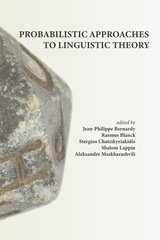
During the last two decades, computational linguists, in concert with other researchers in AI, have turned to machine learning and statistical techniques to capture features of natural language and aspects of the learning process that are not easily accommodated in classical algebraic frameworks. These developments are producing a revolution in linguistics in which traditional symbolic systems are giving way to probabilistic and deep learning approaches. This collection features articles that provide background to these approaches, and their application in syntax, semantics, pragmatics, morphology, psycholinguistics, neurolinguistics, and dialogue modeling. Each chapter provides a self-contained introduction to the topic that it covers, making this volume accessible to graduate students and researchers in linguistics, NLP, AI, and cognitive science.

American crime fiction has developed into writing that has a commitment to democracy and the democratic way of life, a compassion and empathy and a style which has created a significant branch of American literature.
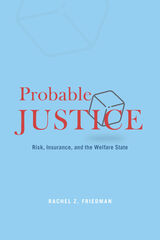
Probable Justice traces a history of social insurance from the eighteenth century to today, from the earliest ideas of social accountability through the advanced welfare state of collective responsibility and risk. At the heart of Rachel Z. Friedman’s investigation is a study of how probability theory allows social insurance systems to flexibly measure risk and distribute coverage. The political genius of social insurance, Friedman shows, is that it allows for various accommodations of needs, risks, financing, and political aims—and thereby promotes security and fairness for citizens of liberal democracies.
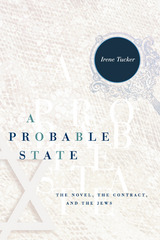
Whereas previous critics have explored the relationship between liberalism and the novel by studying the novel's liberal characters, Tucker argues that the liberal subject is represented not merely within the novel, but in the experience of the novel's form as well. With special attention to George Eliot, Henry James, Oliver Wendell Holmes, and S. Y. Abramovitch, Tucker shows how we can understand liberalism and the novel as modes of recognizing and negotiating with history.
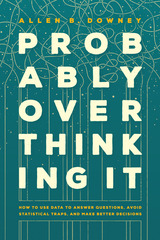
Statistics are everywhere: in news reports, at the doctor’s office, and in every sort of forecast, from the stock market to the weather. Blogger, teacher, and computer scientist Allen B. Downey knows well that people have an innate ability both to understand statistics and to be fooled by them. As he makes clear in this accessible introduction to statistical thinking, the stakes are big. Simple misunderstandings have led to incorrect medical prognoses, underestimated the likelihood of large earthquakes, hindered social justice efforts, and resulted in dubious policy decisions. There are right and wrong ways to look at numbers, and Downey will help you see which are which.
Probably Overthinking It uses real data to delve into real examples with real consequences, drawing on cases from health campaigns, political movements, chess rankings, and more. He lays out common pitfalls—like the base rate fallacy, length-biased sampling, and Simpson’s paradox—and shines a light on what we learn when we interpret data correctly, and what goes wrong when we don’t. Using data visualizations instead of equations, he builds understanding from the basics to help you recognize errors, whether in your own thinking or in media reports. Even if you have never studied statistics—or if you have and forgot everything you learned—this book will offer new insight into the methods and measurements that help us understand the world.

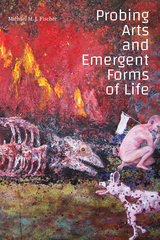
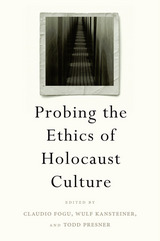
Depictions of the Holocaust in history, literature, and film became a focus of intense academic debate in the 1980s and 1990s. Today, with the passing of the eyewitness generation and the rise of comparative genocide studies, the Holocaust’s privileged place not only in scholarly discourse but across Western society has been called into question.
Probing the Ethics of Holocaust Culture is a searching reappraisal of the debates and controversies that have shaped Holocaust studies over a quarter century. This landmark volume brings international scholars of the founding generation of Holocaust studies into conversation with a new generation of historians, artists, and writers who have challenged the limits of representation through their scholarly and cultural practices. Focusing on the public memorial cultures, testimonial narratives, and artifacts of cultural memory and history generated by Holocaust remembrance, the volume examines how Holocaust culture has become institutionalized, globalized, and variously contested. Organized around three interlocking themes—the stakes of narrative, the remediation of the archive, and the politics of exceptionality—the essays in this volume explore the complex ethics surrounding the discourses, artifacts, and institutions of Holocaust remembrance.
From contrasting viewpoints and, in particular, from the multiple perspectives of genocide studies, the authors question if and why the Holocaust should remain the ultimate test case for ethics and a unique reference point for how we understand genocide and crimes against humanity.
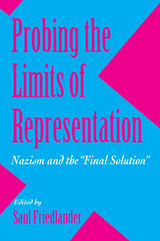
Can the Holocaust be compellingly described or represented? Or is there some core aspect of the extermination of the Jews of Europe which resists our powers of depiction, of theory, of narrative? In this volume, twenty scholars probe the moral, epistemological, and aesthetic limits of an account or portrayal of the Nazi horror.
Christopher Browning, Hayden White, Carlo Ginzburg, Martin Jay, Dominick LaCapra, and others focus first on the general question: can the record of his historical event be established objectively through documents and witnesses, or is every historical interpretation informed by the perspective of its narrator? The suggestion that all historical accounts are determined by a preestablished narrative choice raises the ethical and intellectual issues of various forms of relativization. In more specific terms, what are the possibilities of historicizing National Socialism without minimizing the historical place of the Holocaust?
Also at issue are the problems related to an artistic representation, particularly the dilemmas posed by aestheticization. John Felstiner, Yael S. Feldman, Sidra Ezrahi, Eric Santner, and Anton Kaes grapple with these questions and confront the inadequacy of words in the face of the Holocaust. Others address the problem of fitting Nazi policies and atrocities into the history of Western thought and science. The book concludes with Geoffrey Hartman’s evocative meditation on memory.
These essays expose to scrutiny questions that have a pressing claim on our attention, our conscience, and our cultural memory. First presented at a conference organized by Saul Friedlander, they are now made available for the wide consideration and discussion they merit.


Assesses a promising new approach to restoring the health of our bodies and our planet
Most of us are familiar with probiotics added to milk or yogurt to improve gastrointestinal health. In fact, the term refers to any intervention in which life is used to manage life—from the microscopic, like consuming fermented food to improve gut health, to macro approaches such as biological pest control and natural flood management. In this ambitious and original work, Jamie Lorimer offers a sweeping overview of diverse probiotic approaches and an insightful critique of their promise and limitations.
During our current epoch—the Anthropocene—human activity has been the dominant influence on climate and the environment, leading to the loss of ecological abundance, diversity, and functionality. Lorimer describes cases in which scientists and managers are working with biological processes to improve human, environmental, and even planetary health, pursuing strategies that stand in contrast to the “antibiotic approach”: Big Pharma, extreme hygiene, and industrial agriculture. The Probiotic Planet focuses on two forms of “rewilding” occurring on vastly different scales. The first is the use of keystone species like wolves and beavers as part of landscape restoration. The second is the introduction of hookworms into human hosts to treat autoimmune disorders. In both cases, the goal is to improve environmental health, whether the environment being managed is planetary or human. Lorimer argues that, all too often, such interventions are viewed in isolation, and he calls for a rethinking of artificial barriers between science and policy. He also describes the stark and unequal geographies of the use of probiotic approaches and examines why these patterns exist.
The author’s preface provides a thoughtful discussion of the COVID-19 pandemic as it relates to the probiotic approach. Informed by deep engagement with microbiology, immunology, ecology, and conservation biology as well as food, agriculture, and waste management, The Probiotic Planet offers nothing less than a new paradigm for collaboration between the policy realm and the natural sciences.
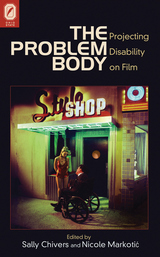
To call into question why certain bodies invite the label “problem” more frequently than other bodies, the contributors draw on scholarship from feminist, race, queer, cultural studies, disability, and film studies arenas. In Chivers and Markotic’s introduction, they draw on disability theory and a range of cinematic examples to explain the term “problem body” in relation to its projection. In explorations of film noir, illness narratives, classical Hollywood film, and French film, the essays reveal the “problem body” as a multiplication of lived circumstances constructed both physically and socially.

Chapter by chapter, the book analyzes the stars' best-known and best-loved roles, including Martin as Nellie in South Pacific, Merman as Momma Rose in GypsyAndrews as Eliza in My Fair Lady and Guinevere in Camelot, and Streisand as Fanny Brice in Funny Girl. The final chapter scrutinizes the Broadway and film versions of The Sound of Music, illuminating its place in the hearts of lesbian spectators and the "delicious queerness" of Andrews's troublesome nun. As the first feminist and lesbian study of the American Broadway musical, A Problem Like Maria is a groundbreaking contribution to feminist studies, queer studies, and American studies and a delight for fans of musical theater.
Stacy Wolf is Associate Professor of Theatre and Dance, University of Texas, Austin.

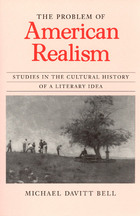
In chapters on William Dean Howells, Frank Norris, Mark Twain, Henry James, Stephen Crane, Theodore Dreiser, and Sarah Orne Jewett, Bell examines the effects that ideas about realism and naturalism had on writers. He demonstrates that, for many of them, claiming to be a realist or a naturalist was a way to provide assurance that one was a "real" man rather than an "effeminate" artist.


During the Northern Song dynasty (960-1126), new ground was broken in aesthetic thought, particularly in the fields of art collecting, poetry criticism, connoisseurship of flowers, and the song lyric. Collectively these activities constitute much of what was distinctive about Northern Song culture. Yet the subjects treated here were unprecedented when they appeared; consequently, bold exploration was coupled with anxiety about the worth of these interests, especially given the Confucian biases against these pursuits.
Despite differences in each area, certain overarching themes surface repeatedly. Together, these interests and choices suggest a logic behind the new directions of literati culture in the Northern Song. By focusing on the "problem of beauty," the author calls attention to the difficulties that Northern Song innovators faced in justifying these new pursuits.

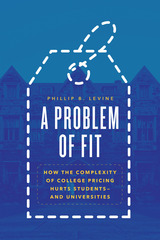
How much does it cost to attend college in the United States today? The answer is more complex than many realize. College websites advertise a sticker price, but uncovering the actual price—the one after incorporating financial aid—can be difficult for students and families. This inherent uncertainty leads some students to forgo applying to colleges that would be the best fit for them, or even not attend college at all. The result is that millions of promising young people may lose out on one of society’s greatest opportunities for social mobility. Colleges suffer too, losing prospective students and seeing lower enrollments and less socioeconomic diversity. If markets require prices to function well, then the American higher-education system—rife as it is with ambiguity in its pricing—amounts to a market failure.
In A Problem of Fit, economist Phillip B. Levine explains why institutions charge the prices they do and discusses the role of financial aid systems in facilitating—and discouraging—access to college. Affordability issues are real, but price transparency is also part of the problem. As Levine makes clear, our conversations around affordability and free tuition miss a larger truth: that the opacity of our current college-financing systems is a primary driver of inequities in education and society. In a clear-eyed assessment of educational access and aid in a post-COVID-19 economy, A Problem of Fit offers a trenchant new argument for educational reforms that are well within reach.
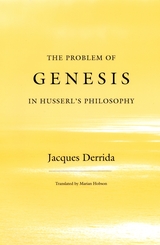
For Derrida, the problem of genesis in Husserl's philosophy is that both temporality and meaning must be generated by prior acts of the transcendental subject, but transcendental subjectivity must itself be constituted by an act of genesis. Hence, the notion of genesis in the phenomenological sense underlies both temporality and atemporality, history and philosophy, resulting in a tension that Derrida sees as ultimately unresolvable yet central to the practice of phenomenology.
Ten years later, Derrida moved away from phenomenology entirely, arguing in his introduction to Husserl's posthumously published Origin of Geometry and his own Speech and Phenomena that the phenomenological project has neither resolved this tension nor expressly worked with it. The Problem of Genesis complements these other works, showing the development of Derrida's approach to phenomenology as well as documenting the state of phenomenological thought in France during a particularly fertile period, when Levinas, Sartre, Merleau-Ponty, Ricoeur, and Tran-Duc-Thao, as well as Derrida, were all working through it. But the book is most important in allowing us to follow Derrida's own development as a philosopher by tracing the roots of his later work in deconstruction to these early critical reflections on Husserl's phenomenology.
"A dissertation is not merely a prerequisite for an academic job. It may set the stage for a scholar's life project. So, the doctoral dissertations of Max Weber and Jacques Derrida, never before available in English, may be of more than passing interest. In June, the University of Chicago Press will publish Mr. Derrida's dissertation, The Problem of Genesis in Husserl's Philosophy, which the French philosopher wrote in 1953-54 as a doctoral student, and which did not appear in French until 1990. From the start, Mr Derrida displayed his inventive linguistic style and flouting of convention."—Danny Postel, Chronicle of Higher Education
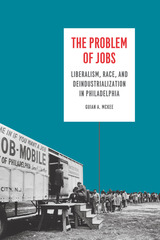
With a focus on Philadelphia, this volume illuminates the central role of these local political and policy struggles in shaping the fortunes of city and citizen alike. In the process, it tells the remarkable story of how Philadelphia’s policymakers and community activists energetically worked to challenge deindustrialization through an innovative series of job retention initiatives, training programs, inner-city business development projects, and early affirmative action programs. Without ignoring the failure of Philadelphians to combat institutionalized racism, Guian McKee's account of their surprising success draws a portrait of American liberalism that evinces a potency not usually associated with the postwar era. Ultimately interpreting economic decline as an arena for intervention rather than a historical inevitability, The Problem of Jobs serves as a timely reminder of policy’s potential to combat injustice.

At the end of the twentieth century, many fear that the bonds holding civil society together have come undone. Yet, as the noted scholar Dennis Wrong shows us, our generation is not alone in fearing a breakdown of social ties and a descent into violent conflict. Modern masters such as Hobbes, Rousseau, Freud, Mead, Parsons, Marx, Durkheim, and Weber tried to understand what in human nature provokes social cooperation and solidarity and what arouses conflict and chaos.
To minimize discord and promote civility, society must grasp the psychological and sociological elements of human nature involved in attaining that end. The author affords an illuminating perspective on our own efforts to create a well-functioning system that allows for productive and meaningful lives and remains open to change and growth. This important book reveals the individual and social processes that offer potential for reconciliation in the present and the future.

In a major contribution to the theory of perception, A. D. Smith presents a truly original defense of direct realism--the view that in perception we are directly aware of things in the physical world.
The Problem of Perception offers two arguments against direct realism--one concerning illusion, and one concerning hallucination--that no current theory of perception can adequately rebut. Smith then develops a theory of perception that does succeed in answering these arguments; and because these arguments are the only two that present direct realism with serious problems arising from the nature of perception, direct realism emerges here for the first time as an ultimately tenable position within the philosophy of perception.
At the heart of Smith's theory is a new way of drawing the distinction between perception and sensation, along with an unusual treatment of the nature of objects of hallucination. With in-depth reference to both the analytical and the phenomenological literature on perception, and with telling criticism of alternative views, Smith's groundbreaking work will be of value to philosophers of perception in both the analytical and the phenomenological tradition, as well as to psychologists of perception.

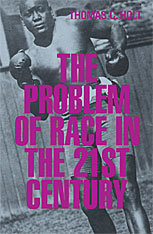
"The problem of the twentieth century is the problem of the color-line," W. E. B. Du Bois wrote in 1903, and his words have proven sadly prophetic. As we enter the twenty-first century, the problem remains--and yet it, and the line that defines it, have shifted in subtle but significant ways. This brief book speaks powerfully to the question of how the circumstances of race and racism have changed in our time--and how these changes will affect our future.
Foremost among the book's concerns are the contradictions and incoherence of a system that idealizes black celebrities in politics, popular culture, and sports even as it diminishes the average African-American citizen. The world of the assembly line, boxer Jack Johnson's career, and The Birth of a Nation come under Holt's scrutiny as he relates the malign progress of race and racism to the loss of industrial jobs and the rise of our modern consumer society. Understanding race as ideology, he describes the processes of consumerism and commodification that have transformed, but not necessarily improved, the place of black citizens in our society.
As disturbing as it is enlightening, this timely work reveals the radical nature of change as it relates to race and its cultural phenomena. It offers conceptual tools and a new way to think and talk about racism as social reality.

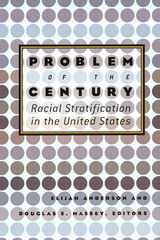
![front cover of The Problem of the Color[blind]](https://www.bibliovault.org/thumbs/978-0-472-02792-7-thumb.jpg)
"Catanese's beautifully written and cogently argued book addresses one of the most persistent sociopolitical questions in contemporary culture. She suggests that it is performance and the difference it makes that complicates the terms by which we can even understand 'multicultural' and 'colorblind' concepts. A tremendously illuminating study that promises to break new ground in the fields of theatre and performance studies, African American studies, feminist theory, cultural studies, and film and television studies."
---Daphne Brooks, Princeton University
"Adds immeasurably to the ways in which we can understand the contradictory aspects of racial discourse and performance as they have emerged during the last two decades. An ambitious, smart, and fascinating book."
---Jennifer DeVere Brody, Duke University
Are we a multicultural nation, or a colorblind one? The Problem of the Color[blind] examines this vexed question in American culture by focusing on black performance in theater, film, and television. The practice of colorblind casting---choosing actors without regard to race---assumes a performing body that is somehow race neutral. But where, exactly, is race neutrality located---in the eyes of the spectator, in the body of the performer, in the medium of the performance? In analyzing and theorizing such questions, Brandi Wilkins Catanese explores a range of engaging and provocative subjects, including the infamous debate between playwright August Wilson and drama critic Robert Brustein, the film career of Denzel Washington, Suzan-Lori Parks's play Venus, the phenomenon of postblackness (as represented in the Studio Museum in Harlem's "Freestyle" exhibition), the performer Ice Cube's transformation from icon of gangsta rap to family movie star, and the controversial reality television series Black. White. Concluding that ideologies of transcendence are ahistorical and therefore unenforceable, Catanese advances the concept of racial transgression---a process of acknowledging rather than ignoring the racialized histories of performance---as her chapters move between readings of dramatic texts, films, popular culture, and debates in critical race theory and the culture wars.
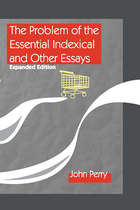
John Perry discusses how these kinds of words work, and why they express important philosophical thoughts. He shows that indexicals pose a challenge to traditional assumptions about language and thought. Over the years a number of these papers, now included in this book, have sparked lively debates and have been influential in philosophy, linguistics and other areas of cognitive science.
With seven new papers, including the previously unpublished ``What Are Indexicals?,'' the present volume expands on an earlier version of this book published in the early nineties. Also included are the well-known papers ``Frege on Demonstratives,'' ``Cognitive Significance and New Theories of Reference,'' ``Evading the Slingshot,'' ``The Prince and the Phone booth'' (coauthored with Mark Crimmins), ``Fodor on Psychological Explanations'' (coauthored with David Israel), and related papers on situation semantics, direct reference, and the structure of belief. This book also includes afterwords written by the author that discuss responses to his work by Gareth Evans, Robert Stalnaker, Barbara Partee, Howard Wettstein and others.
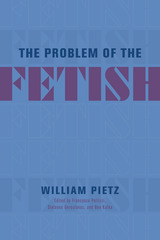
In recent decades, William Pietz’s innovative history of the idea of the fetish has become a cult classic. Gathered here, for the first time, is his complete series of essays on fetishism, supplemented by three texts on Marx, blood sacrifice, and the money value of human life. Tracing the idea of the fetish from its origins in the Portuguese colonization of West Africa to its place in Enlightenment thought and beyond, Pietz reveals the violent emergence of a foundational concept for modern theories of value, belief, desire, and difference. This book cements Pietz’s legacy of engaging questions about material culture, object agency, merchant capitalism, and spiritual power, and introduces a powerful theorist to a new generation of thinkers.
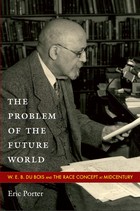
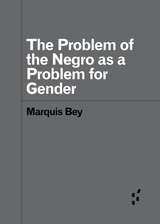
A complex articulation of the ways blackness and nonnormative gender intersect—and a deeper understanding of how subjectivities are formed
A deep meditation on and expansion of the figure of the Negro and insurrectionary effects of the “X” as theorized by Nahum Chandler, The Problem of the Negro as a Problem for Gender thinks through the problematizing effects of blackness as, too, a problematizing of gender. Through the paraontological, the between, and the figure of the “X” (with its explicit contemporary link to nonbinary and trans genders) Marquis Bey presents a meditation on black feminism and gender nonnormativity. Chandler’s text serves as both an argumentative tool for rendering the “radical alternative” in and as blackness as well as demonstrating the necessarily trans/gendered valences of that radical alternative.
Forerunners is a thought-in-process series of breakthrough digital works. Written between fresh ideas and finished books, Forerunners draws on scholarly work initiated in notable blogs, social media, conference plenaries, journal articles, and the synergy of academic exchange. This is gray literature publishing: where intense thinking, change, and speculation take place in scholarship.
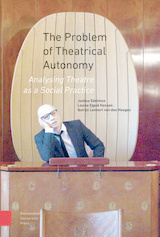

Lucien Febvre’s magisterial study of sixteenth century religious and intellectual history, published in 1942, is at long last available in English, in a translation that does it full justice. The book is a modern classic. Febvre, founder with Marc Bloch of the journal Annales, was one of France’s leading historians, a scholar whose field of expertise was the sixteenth century. This book, written late in his career, is regarded as his masterpiece. Despite the subtitle, it is not primarily a study of Rabelais; it is a study of the mental life, the mentalité, of a whole age.
Febvre worked on the book for ten years. His purpose at first was polemical: he set out to demolish the notion that Rabelais was a covert atheist, a freethinker ahead of his time. To expose the anachronism of that view, he proceeded to a close examination of the ideas, information, beliefs, and values of Rabelais and his contemporaries. He combed archives and local records, compendia of popular lore, the work of writers from Luther and Erasmus to Ronsard, the verses of obscure neo-Latin poets. Everything was grist for his mill: books about comets, medical texts, philological treatises, even music and architecture. The result is a work of extraordinary richness of texture, enlivened by a wealth of concrete details—a compelling intellectual portrait of the period by a historian of rare insight, great intelligence, and vast learning.
Febvre wrote with Gallic flair. His style is informal, often witty, at times combative, and colorful almost to a fault. His idiosyncrasies of syntax and vocabulary have defeated many who have tried to read, let alone translate, the French text. Beatrice Gottlieb has succeeded in rendering his prose accurately and readably, conveying a sense of Febvre’s strong, often argumentative personality as well as his brilliantly intuitive feeling for Renaissance France.
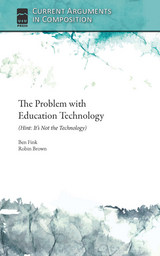
Education is in crisis—at least, so we hear. And at the center of this crisis is technology. New technologies like computer-based classroom instruction, online K–12 schools, MOOCs (massive open online courses), and automated essay scoring may be our last great hope—or the greatest threat we have ever faced.
In The Problem with Education Technology, Ben Fink and Robin Brown look behind the hype to explain the problems—and potential—of these technologies. Focusing on the case of automated essay scoring, they explain the technology, how it works, and what it does and doesn’t do. They explain its origins, its evolution (both in the classroom and in our culture), and the controversy that surrounds it. Most significantly, they expose the real problem—the complicity of teachers and curriculum-builders in creating an education system so mechanical that machines can in fact often replace humans—and how teachers, students, and other citizens can work together to solve it.
Offering a new perspective on the change that educators can hope, organize, and lobby for, The Problem with Education Technology challenges teachers and activists on “our side,” even as it provides new evidence to counter the profit-making, labor-saving logics that drive the current push for technology in the classroom.
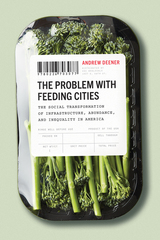
The Problem with Feeding Cities is a sociological and historical examination of how this remarkable network of abundance and convenience came into being over the last century. It looks at how the US food system transformed from feeding communities to feeding the entire nation, and it reveals how a process that was once about fulfilling basic needs became focused on satisfying profit margins. It is also a story of how this system fails to feed people, especially in the creation of food deserts. Andrew Deener shows that problems with food access are the result of infrastructural failings stemming from how markets and cities were developed, how distribution systems were built, and how organizations coordinate the quality and movement of food. He profiles hundreds of people connected through the food chain, from farmers, wholesalers, and supermarket executives, to global shippers, logistics experts, and cold-storage operators, to food bank employees and public health advocates. It is a book that will change the way we see our grocery store trips and will encourage us all to rethink the way we eat in this country.
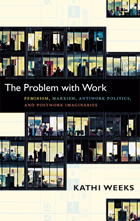

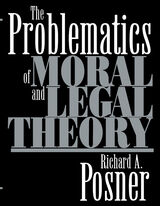

This new edition will delight linguists and philosophers already familiar with Benveniste and introduce his work to a new generation of students. Benveniste studies are going through an enthusiastic revival in Europe; after reading this book, readers elsewhere will understand why.

Problems of Administration in Social Work was first published in 1940. Minnesota Archive Editions uses digital technology to make long-unavailable books once again accessible, and are published unaltered from the original University of Minnesota Press editions.

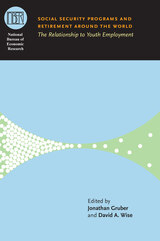
One of the most important public policy issues in the United States is how to improve the life prospects of disadvantaged youth who, in their formative years, face low-quality school systems, poor access to health care, and high-crime environments. The Problems of Disadvantaged Youth includes a broad range of research examining various aspects of disadvantage, and ways of increasing the ability of low-income youths to improve their circumstances later in life.
Taking an empirical economics perspective, the nine essays in this volume assess the causal impacts of disadvantage on youth outcomes, and how policy interventions can alleviate those impacts. Each chapter develops a framework to describe the relationship between youths and later life outcomes, addressing such factors as educational opportunity, health, neighborhood crime rates, and employment. This vital book documents the serious short- and long-term negative consequences of childhood disadvantage and provides nuanced evidence of the impact of public policy designed to help needy children.
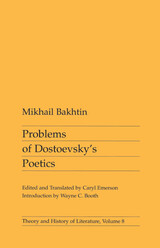
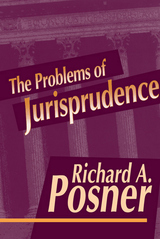
In this book, one of our country’s most distinguished scholar-judges shares with us his vision of the law. For the past two thousand years, the philosophy of law has been dominated by two rival doctrines. One contends that law is more than politics and yields, in the hands of skillful judges, correct answers to even the most difficult legal questions; the other contends that law is politics through and through and that judges wield essentially arbitrary powers. Rejecting these doctrines as too metaphysical in the first instance and too nihilistic in the second, Richard Posner argues for a pragmatic jurisprudence, one that eschews formalism in favor of the factual and the empirical. Laws, he argues, are not abstract, sacred entities, but socially determined goads for shaping behavior to conform with society’s values.
Examining how judges go about making difficult decisions, Posner argues that they cannot rely on either logic or science, but must fall back on a grab bag of informal methods of reasoning that owe less than one might think to legal training and experience. Indeed, he reminds us, the greatest figures in American law have transcended the traditional conceptions of the lawyer’s craft. Robert Jackson did not attend law school and Benjamin Cardozo left before getting a degree. Holmes was neither the most successful of lawyers nor the most lawyerly of judges. Citing these examples, Posner makes a plea for a law that frees itself from excessive insularity and takes all knowledge, practical and theoretical, as grist for its mill.
The pragmatism that Posner espouses implies looking at problems concretely, experimentally, without illusions, with an emphasis on keeping diverse paths of inquiry open, and, above all, with the insistence that social thought and action be evaluated as instruments to desired human goals rather than as ends in themselves. In making his arguments, he discusses notable figures in jurisprudence from Antigone to Ronald Dworkin as well as recent movements ranging from law and economics to civic republicanism, and feminism to libertarianism. All are subjected to Posner’s stringent analysis in a fresh and candid examination of some of the deepest problems presented by the enterprise of law.


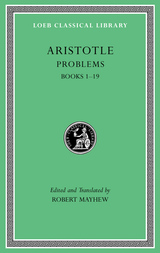
Peripatetic potpourri.
Aristotle of Stagirus (384–322 BC), the great Greek philosopher, researcher, logician, and scholar, studied with Plato at Athens and taught in the Academy (367–347). Subsequently he spent three years in Asia Minor at the court of his former pupil Hermeias, where he married Pythias, one of Hermeias’ relations. After some time at Mitylene, he was appointed in 343/2 by King Philip of Macedon to be tutor of his teen-aged son Alexander. After Philip’s death in 336, Aristotle became head of his own school (of “Peripatetics”), the Lyceum at Athens. Because of anti-Macedonian feeling there after Alexander’s death in 323, he withdrew to Chalcis in Euboea, where he died the following year.
Problems, the third-longest work in the Aristotelian corpus, contains thirty-eight books covering more than 900 problems about living things, meteorology, ethical and intellectual virtues, parts of the human body, and other topics. Although Problems is an accretion of multiple authorship over several centuries, it offers a fascinating technical view of Peripatetic method and thought. Problems, in two volumes, replaces the earlier Loeb edition by Hett, with a text and translation incorporating the latest scholarship.

Aristotle, great Greek philosopher, researcher, reasoner, and writer, born at Stagirus in 384 BCE, was the son of Nicomachus, a physician, and Phaestis. He studied under Plato at Athens and taught there (367–47); subsequently he spent three years at the court of a former pupil, Hermeias, in Asia Minor and at this time married Pythias, one of Hermeias’s relations. After some time at Mitylene, in 343–2 he was appointed by King Philip of Macedon to be tutor of his teen-aged son Alexander. After Philip’s death in 336, Aristotle became head of his own school (of “Peripatetics”), the Lyceum at Athens. Because of anti-Macedonian feeling there after Alexander’s death in 323, he withdrew to Chalcis in Euboea, where he died in 322.Nearly all the works Aristotle prepared for publication are lost; the priceless ones extant are lecture-materials, notes, and memoranda (some are spurious). They can be categorized as follows:I. Practical: Nicomachean Ethics; Great Ethics (Magna Moralia); Eudemian Ethics; Politics; Oeconomica (on the good of the family); Virtues and Vices.
II. Logical: Categories; On Interpretation; Analytics (Prior and Posterior); On Sophistical Refutations; Topica.
III. Physical: Twenty-six works (some suspect) including astronomy, generation and destruction, the senses, memory, sleep, dreams, life, facts about animals, etc.
IV. Metaphysics: on being as being.
V. On Art: Art of Rhetoric and Poetics.
VI. Other works including the Athenian Constitution; more works also of doubtful authorship.
VII. Fragments of various works such as dialogues on philosophy and literature; and of treatises on rhetoric, politics and metaphysics.The Loeb Classical Library® edition of Aristotle is in twenty-three volumes.
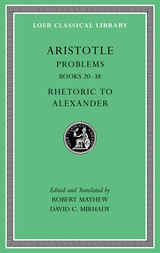
Peripatetic potpourri.
Aristotle of Stagirus (384–322 BC), the great Greek philosopher, researcher, logician, and scholar, studied with Plato at Athens and taught in the Academy (367–347). Subsequently he spent three years in Asia Minor at the court of his former pupil Hermeias, where he married Pythias, one of Hermeias’ relations. After some time at Mitylene, he was appointed in 343/2 by King Philip of Macedon to be tutor of his teen-aged son Alexander. After Philip’s death in 336, Aristotle became head of his own school (of “Peripatetics”), the Lyceum at Athens. Because of anti-Macedonian feeling there after Alexander’s death in 323, he withdrew to Chalcis in Euboea, where he died the following year.
Problems, the third-longest work in the Aristotelian corpus, contains thirty-eight books covering more than 900 problems about living things, meteorology, ethical and intellectual virtues, parts of the human body, and other topics. Although Problems is an accretion of multiple authorship over several centuries, it offers a fascinating technical view of Peripatetic method and thought. Both Problems, in two volumes, and Rhetoric to Alexander replace the earlier Loeb edition by Hett and Rackham, with texts and translations incorporating the latest scholarship.

Aristotle, great Greek philosopher, researcher, reasoner, and writer, born at Stagirus in 384 BCE, was the son of Nicomachus, a physician, and Phaestis. He studied under Plato at Athens and taught there (367–47); subsequently he spent three years at the court of a former pupil, Hermeias, in Asia Minor and at this time married Pythias, one of Hermeias’s relations. After some time at Mitylene, in 343–2 he was appointed by King Philip of Macedon to be tutor of his teen-aged son Alexander. After Philip’s death in 336, Aristotle became head of his own school (of “Peripatetics”), the Lyceum at Athens. Because of anti-Macedonian feeling there after Alexander’s death in 323, he withdrew to Chalcis in Euboea, where he died in 322.Nearly all the works Aristotle prepared for publication are lost; the priceless ones extant are lecture-materials, notes, and memoranda (some are spurious). They can be categorized as follows:I. Practical: Nicomachean Ethics; Great Ethics (Magna Moralia); Eudemian Ethics; Politics; Oeconomica (on the good of the family); Virtues and Vices.
II. Logical: Categories; On Interpretation; Analytics (Prior and Posterior); On Sophistical Refutations; Topica.
III. Physical: Twenty-six works (some suspect) including astronomy, generation and destruction, the senses, memory, sleep, dreams, life, facts about animals, etc.
IV. Metaphysics: on being as being.
V. On Art: Art of Rhetoric and Poetics.
VI. Other works including the Athenian Constitution; more works also of doubtful authorship.
VII. Fragments of various works such as dialogues on philosophy and literature; and of treatises on rhetoric, politics and metaphysics.The Loeb Classical Library® edition of Aristotle is in twenty-three volumes.

Alan Shapiro’s fourteenth collection of poetry, Proceed to Check Out, is a kind of summing up, or stock-taking, by an aging poet, of his precarious place in a world dominated by the ever-accelerating pace of technological innovation, political disruption, personal loss, and racial strife. These poems take on fundamental subjects—like the nature of time and consciousness and how or why we become who we are—but Shapiro presses them into becoming urgent and timely.
Employing idiomatic range and formal variety, Shapiro’s poems move through recurring dreams, the coercions of childhood, and the mysterious connections of mind and matter, pleasure and memory. They meet an abiding need to find empathy and understanding in even the most challenging places—amid disaffection, public discord, and estrangement. His grasp of contemporary life—in all its insidious violence and beauty—is distinct, comprehensive, and profound.

Let the reader beware. Educated readers naturally feel entitled to know what they're reading--often, if they try hard enough, to know it with the conspiratorial intimacy of a potential partner. This book reminds us that cultural differences may in fact make us targets of a text, not its co-conspirators. Some literature, especially culturally particular or "minority" literature, actually uses its differences and distances to redirect our desire for intimacy toward more cautious, respectful engagements. To name these figures of cultural discontinuity--to describe a rhetoric of particularism in the Americas--is the purpose of Proceed with Caution.
In a series of daring forays, from seventeenth-century Inca Garcilaso de la Vega to Julio Cortázar and Mario Vargas Llosa, Doris Sommer shows how ethnically marked texts use enticing and frustrating language games to keep readers engaged with difference: Gloria Estefan's syncopated appeal to solidarity plays on Whitman's undifferentiated ideal; unrequitable seductions echo through Rigoberta Menchú's protestations of secrecy, Toni Morrison's interrupted confession, the rebuffs in a Mexican testimonial novel. In these and other examples, Sommer trains us to notice the signs that affirm a respectful distance as a condition of political fairness and aesthetic effect--warnings that will be audible (and engaging for readings that tolerate difference) once we listen for a rhetoric of particularism.

In 1849, the new Wheeling Suspension Bridge was a triumph of engineering, the world's longest clear span bridge. The Wheeling bridge was also a landmark in the development of the American frontier, spanning the Ohio River to speed settlement and commerce in the Midwest and beyond. In 1999, historians, engineers, and industrial archaeologists from around the world met in Wheeling to celebrate the still-busy bridge's 150th anniversary. This book presents highlights of the conference, and points out the far-reaching effects of bridge-building.



The Harvard Celtic Colloquium was established in 1980 by two graduate students in the Harvard University Department of Celtic Languages and Literatures as a forum in which graduate students could share their work and gain experience in professional academia. Since then, it has been organized annually by a team of students in the department, grown in size, and gained an international reputation which annually draws a diverse mix of scholars from around the world to present papers on all facets of Celtic Studies.
The Harvard Celtic Colloquium is the only conference in the field of Celtic Studies to be wholly organized and run by graduate students. Since its inception, established and internationally-renowned scholars in Celtic as well as graduate students, junior academics, and unaffiliated scholars have been drawn to this dynamic setting, presenting papers on ancient, medieval, and modern topics in the many disciplines relating to Celtic Studies; including literature, linguistics, art, archeology, government, economics, music, and history.
Papers given at the Colloquium may be submitted for review to the organizers of the conference, who become the editors for those papers selected for publication in the Proceedings of the Harvard Celtic Colloquium. Only papers presented at the annual conference are considered for publication.
Harvard University Press is proud to announce that we will distribute the Proceedings of the Harvard Celtic Colloquium. Two new issues are available this Fall: Volume 18/19 (1998 and 1999) and Volume 20/21 (2000 and 2001). Back issues are also available.

Proceedings of the Harvard Celtic Colloquium, 20 includes “Retoiric and Composition in Geneamuin Chormaic,” by Hugh Fogarty; “Classical Ethnography and Celts: Can We Trust the Sources?” by Philip Freeman; “Prayers, Prizefights and Prostitution: The Medieval Irish Cemetery and Its Many Uses,” by Susan Leigh Fry; “Magical Realism and the Mabinogi: An Exercise in Methodology,” by Michael Linkletter; “Rebuke and Revision in the Early Irish Annals: The Death-Notices of Muirchertach mac Ercae [†534],” by Laurence Maney; “‘To a man for the King’: The Allegiance of Welsh Catholics during the First Civil War, 1642–46,” by Robert Matthews; “King and Druid,” by Arun Micheelsen; “‘Words, words, words’: Language about Language in France and Ireland,” by Grace Neville; “Ystoria Tri Brenin o Gwlen,” by Prydwyn Piper; and “Highland Motives in the Jacobite Rising of 1745–46: ‘Forcing Out,’ Traditional Documentation and Gaelic Poetry,” by James A. Stewart, Jr.
Proceedings of the Harvard Celtic Colloquium, 21 includes “Gendering the Vita Prima: An Examination of St. Brigid’s Role as ‘Mary of the Gael,’” by Diane Peters Auslander; “Apollonius of Rhodes’ Argonautica: A Mythology of Greek Expansion in Celtic Lands,” by Timothy P. Bridgman; “The Wealth of the Medieval Welsh Gentry: The Case of Gwilym ap Gruffydd of Penrhyn,” by A. D. Carr; “Celtic Languages in the 1910 U.S. Census,” by Jonathan Dembling; “Digging Deeper: Adventures in Medieval Irish Burial and the Case for Interdisciplinary Scholarship,” by Susan Leigh Fry; “Laoiseach Mac an Bhaird and the Politics of Close Reading,” by Sarah E. McKibben; “Prescient Birds and Prospective Kings: Further Comments on Irish Elements in the Eddic Poem Rígsþula,” by Amy Eichhorn Mulligan; “The Descent of the Gods: Creation, Cosmogony, and Divine Order in Lebor Gabála,” by Sharon Paice Macleod; “Babel Is Come Again: Linguistic Colonisation and the Bardic Response in Early Modern Ireland,” by Patricia Palmer; “‘In Defiance of the Gospel and by Authority of the Devil’: Criticism of Welsh Marriage Law by the English Ecclesiastical Establishment and Its Socio-Political Context,” by Laura Radiker; and “The Way We Were: Twentieth Century Brittany through the Eyes of Breton Language Memorialists,” by Lenora Timm.



Proceedings of the Harvard Celtic Colloquium, 24 includes “The Celticity of Galicia and the Arrival of the Insular Celts,” by Manuel Alberro; “Reading Aislinge Óenguso as a Christian-Platonist Parable,” by Brenda Gray; “Celtic Legends in Irish Opera, 1900–1930,” by Axel Klein; “‘I wonder what the king is doing tonight’—Looking for Arthur in All the Wrong Places,” by Laurance J. Maney†; “What Future for the Irish Gaeltacht Communities in the Twenty-First Century?” by Nollaig Ó Gadhra†; “Acallam Na Senórach as Prosimetrum,” by Geraldine Parsons; “Traditional and Courtly Themes in a Medieval Welsh Elegy to a ‘Góann Wargann Wery’ (‘A Fair Virgin, Meek and Mild’),” by Laura Radiker; and “Welsh Prophetic Poetry in the Age of the Princes,” by Elizabeth Schoales.
Proceedings of the Harvard Celtic Colloquium, 25 includes “Keltoi, Galatai, Galli: Were They All One People?” by Timothy P. Bridgman; “On Verbal Nouns in Celtic Languages,” by Chao Li; “Cross-Linguistic Discourse Markers in Manx Gaelic and English,” by Marie Clague; “The Acallam na Senórach: A Medieval Instruction Manual,” by Annie Donahue; “Gendered Postcolonial Discourse in the Mabinogi,” by Morgan Kay; “Language Death and Resurrection in the Isle of Man: The Continuity of Manx Gaelic Exemplified by the Use of Inflected Verb Tenses,” by Jennifer Kewley Draskau; “High Kings and Pipe Dreams: Revisiting John Vincent Kelleher’s Theory of Revision to the Early Irish Annals,” by Laurance J. Maney†; and “The Rise of Christian Nomenclature in Medieval Scotland,” by David Morris.

Proceedings of the Harvard Celtic Colloquium, 26 includes “Heroic Recycling in Celtic Tradition,” by Joseph F. Nagy; “On the Celtic-American Fringe: Irish–Mexican Encounters in the Texas–Mexico Borderlands,” by Marian J. Barber; “The Encomium Urbis in Medieval Welsh Poetry,” by Helen Fulton; “Prophecy in Welsh Manuscripts,” by Morgan Kay; “‘Ceol agus Gaol’ (‘Music and Relationship’): Memory, Identity, and Community in Boston’s Irish Music Scene,” by Natalie Kirschstein; “Colonization Circulars: Timber Cycles in the Time of Famine,” by Kathryn Miles; “Up Close and Personal: The French in Bantry Bay (1796) in the Bantry Estate Papers,” by Grace Neville; “In Praise of Two Margarets: Two Laudatory Poems by Piaras Feiritéar,” by Deirdre Nic Mhathúna; “Observations on Cross-Cultural Names and Name Patterns in Medieval Wales and the March,” by Laura Radiker; and “Mouth to Mouth: Gaelic Stories as Told within One Family,” by Carol Zall.
Proceedings of the Harvard Celtic Colloquium, 27 includes “Poets and Carpenters: Creating the Architecture of Happiness in Late-Medieval Wales,” by Richard Suggett; “Revisiting Preaspiration: Evidence from the Survey of the Gaelic Dialects of Scotland,” by Anna Bosch; “The Anoetheu Dialogue in Culhwch ac Olwen,” by Fiona Dehghani; “Homophony and Breton Loss of Lexis,” by Francis Favereau; “The Origins of ‘the Jailtacht,’” by Diarmait Mac Giolla Chríost; “A Confluence of Wisdom: The Symbolism of Wells, Whirlpools, Waterfalls and Rivers in Early Celtic Sources,” by Sharon Paice MacLeod; “The Real Charlotte: The Exclusive Myth of Somerville and Ross,” by Donald McNamara; “Language Shift in Early Twentieth-Century Ireland,” by Máire Ní Chiosáin; and “Conceptions of an Urban Ideal and the Early Modern Welsh Town,” by Sally-Anne Shearn.



Proceedings of the Harvard Celtic Colloquium has in its purview all aspects of culture, language, and history of the Celtic peoples, from ancient to modern times.
This volume of PHCC contains articles on medieval Irish, Welsh, and Breton literature; post-1800 to modern poetry in Irish, Welsh, and Scottish Gaelic; the Irish Revival Movement; and modern Irish and Welsh linguistics. The volume also features the 2010 J. V. Kelleher Lecture by Dr. M. Katharine Simms on the social expression of the literary model of the barefoot king in late medieval Ireland.



The Harvard Celtic Colloquium provides a small but international audience for presentations by scholars from all ranks of scholarship and all areas of Celtic Studies. Among the topics covered are the archaeology, history, culture, linguistics, literatures, politics, religion, and social structures of the countries and regions in which Celtic languages are, or were, spoken, as well as their extended influence, from prehistory to the present. The broad range of the conference is reflected in the content of its published proceedings, which will interest both students newly attracted to Celtic Studies and senior scholars in the field.
PHCC, 33 features the annual John V. Kelleher Lecture for 2013, given by Thomas Owen Clancy, Professor of Celtic at the University of Glasgow, Scotland. Clancy discusses connections between Scottish saints’ names and cults and the onomastics of settlements and topographical features gathered and investigated in preparation for a digital atlas project, “Commemoration of Saints in Scottish Place Names.” In addition, PHCC, 33 includes contributions in the areas of Irish, Welsh, and Scottish history, Irish and Welsh literature and poetry, and Irish ecclesiastical learning.

The Harvard Celtic Colloquium provides a small but international audience for presentations by scholars from all ranks of scholarship and all areas of Celtic Studies. Among the topics covered are the archaeology, history, culture, linguistics, literatures, politics, religion, and social structures of the countries and regions in which Celtic languages are, or were, spoken, and their extended influence, from prehistory to the present. The broad range of the conference is reflected in the content of its published proceedings, which will interest students newly attracted to Celtic Studies as well as senior scholars in the field.
PHCC 34 includes the John V. Kelleher Lecture for 2014 given by Ann Parry Owen, “‘An audacious man of beautiful words’: Ieuan Gethin (c.1390–c.1470).” Several papers in this volume deal with the reflection of political forces and contemporary leaders in the early modern period in the literature of Ireland and Wales. Others consider the influence of Christian authors on Ireland as reflected in various surviving literary documents and tales. Of particular interest for the history of Celtic Studies are articles on early scholarship in the field, and Irish and Welsh vernacular authors who incorporated medieval literary motifs into their own work.

The Harvard Celtic Colloquium provides a small but international audience for presentations by scholars from all ranks of scholarship and all areas of Celtic Studies, the archaeology, history, culture, linguistics, literatures, politics, religion, and social structures of the countries and regions in which Celtic languages are or were spoken, and their extended influence, from prehistory to the present. The broad range of the conference is reflected in the content of its published proceedings, which will interest students newly attracted to Celtic Studies as well as senior scholars in the field.
PHCC, 35 includes the 2015 John V. Kelleher Lecture, “Whodunnit? Indirect Evidence in Early Irish Law,” given by Dr. Fergus Kelly of the School of Celtic Studies, Dublin Institute for Advanced Studies, Dublin, Ireland. Kelly is highly regarded for his command of the large and complex body of Irish legal literature and its social context. Other papers in this volume concern the social context and manuscript tradition of early Irish law; medieval Welsh and Irish literary, poetical, and hagiographical material; modern uses of medieval themes; modern Celtic languages, Irish, Welsh and Breton; and the considerations of using digital resources for Celtic Studies.


This volume of the Proceedings of the Harvard Celtic Colloquium offers a wide range of articles on topics across the field of Celtic Studies.
It includes the 2017 J. V. Kelleher lecture delivered by Paul Russell, Professor of Celtic, University of Cambridge, entitled “‘Mistakes of All Kinds’: The Glossography of Medieval Irish Literary Texts.” In this address Russell offers cogent analysis of this rarely addressed facet of medieval Irish codicology. The articles from other presentations at the Colloquium extend the focus on Celtic glossing into other areas of Celtic linguistics and literary studies. In addition, the volume includes articles on the medieval folkloric, religious, legal, and material culture of Celtic communities, some aspects of which persist into modernity. This volume exemplifies the broad range of topics and time periods characteristic of the Harvard Celtic Colloquium.

Proceedings of the Harvard Celtic Colloquium, 38 collects papers ranging widely on topics of the literary and material culture of the Celtic regions of Ireland, Wales, and Breton in the medieval and modern periods. Several articles concern the self-awareness of the literary elite in Ireland and Wales, whose members respected the traditional forms of their literature but used them to further contemporary purposes. For example, they introduce new references to foreign places and cultures, or use older topographical lore to describe and justify contemporary land use and settlement. Other articles review material culture as it is reflected in literary works of their respective periods and discuss how this in turn illuminates the attitudes of the authors and their intended readers. A number of contributions concern the grammatical structure and linguistic formation of the languages of Ireland, Wales, and Brittany, both early and modern.
The special lecture for the Harvard Celtic Colloquium this year was given by Dr. Aled Jones, Senior Lecturer in Welsh and Medieval Studies at Bangor University, Wales, comparing modern astrophysics to the plasticity of time in medieval Celtic literature, a thought-provoking consideration of congruences in modern and medieval conceptions of time and space. This volume also contains the 2018 Kelleher lecture given by Dr. William Gilles of the University of Edinburgh on a problematic early Scots-Gaelic text, the Harlaw Brosnachadh.
READERS
Browse our collection.
PUBLISHERS
See BiblioVault's publisher services.
STUDENT SERVICES
Files for college accessibility offices.
UChicago Accessibility Resources
home | accessibility | search | about | contact us
BiblioVault ® 2001 - 2024
The University of Chicago Press









